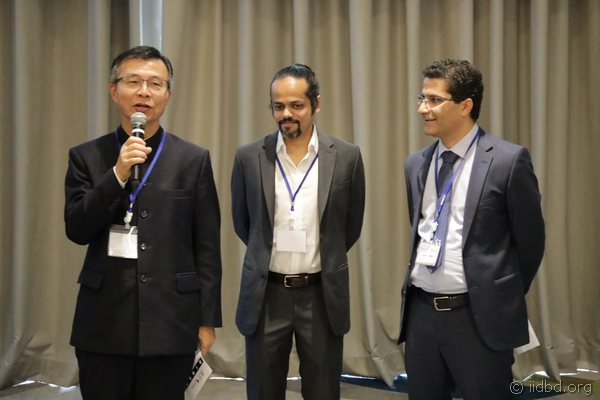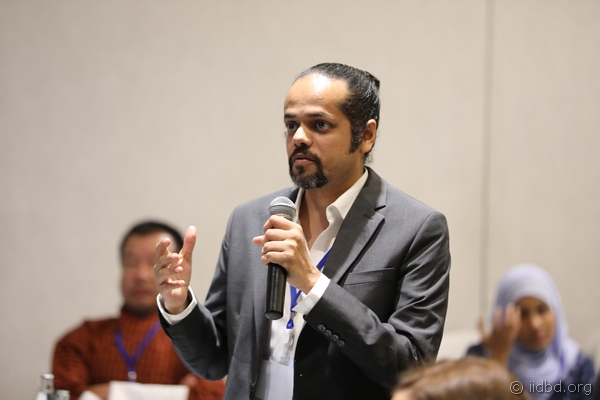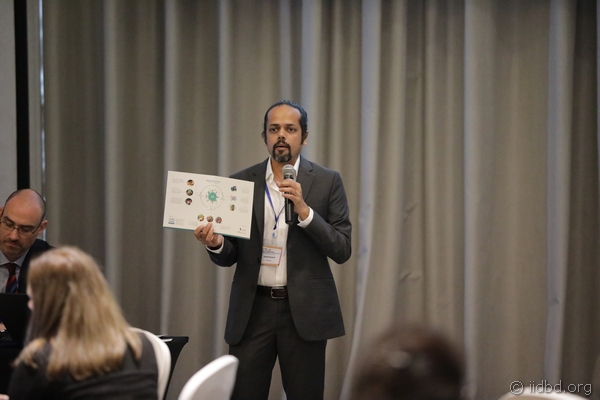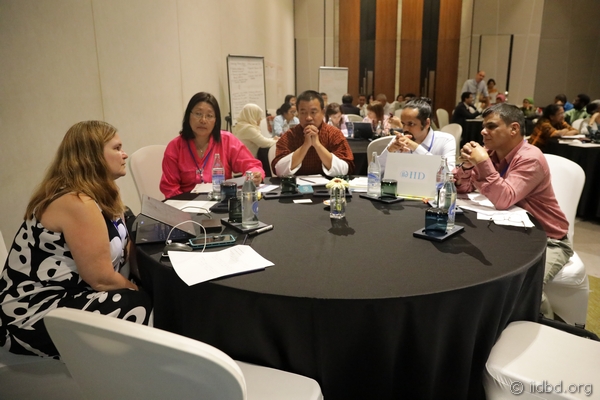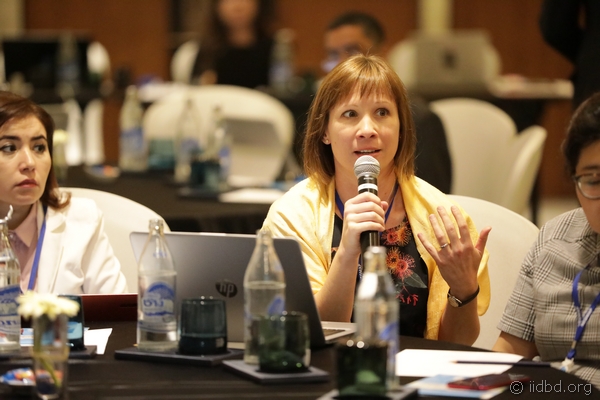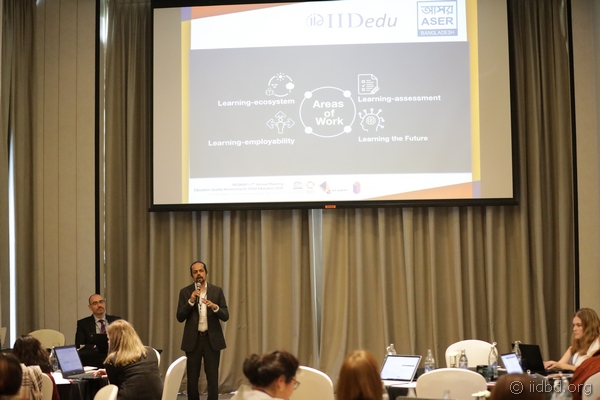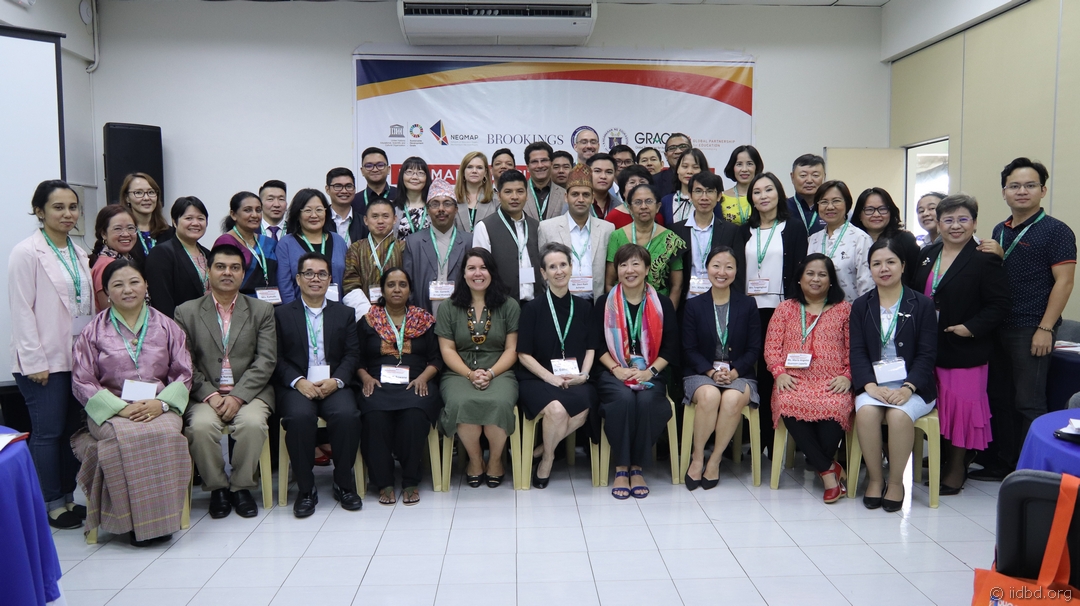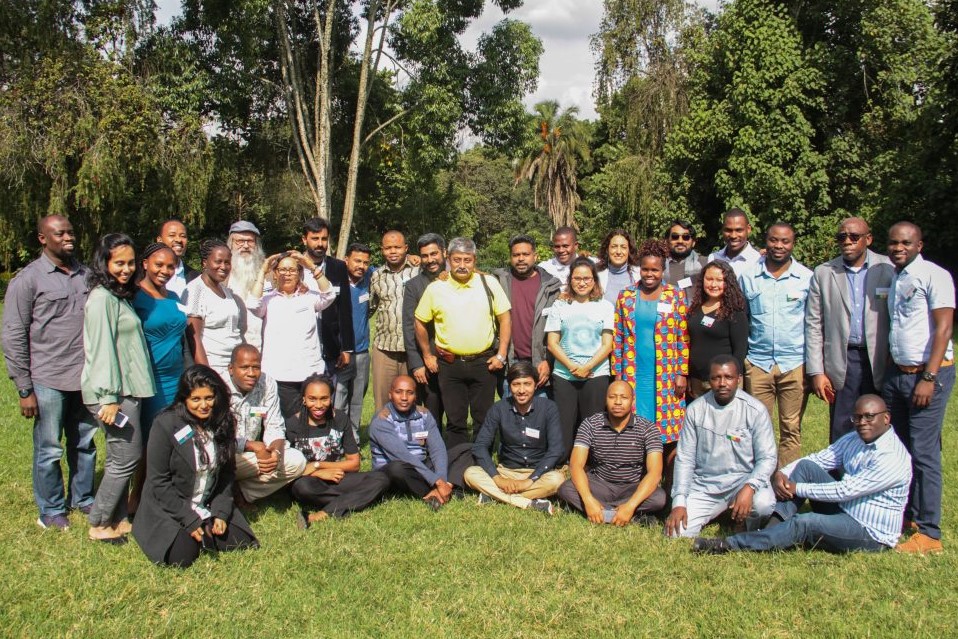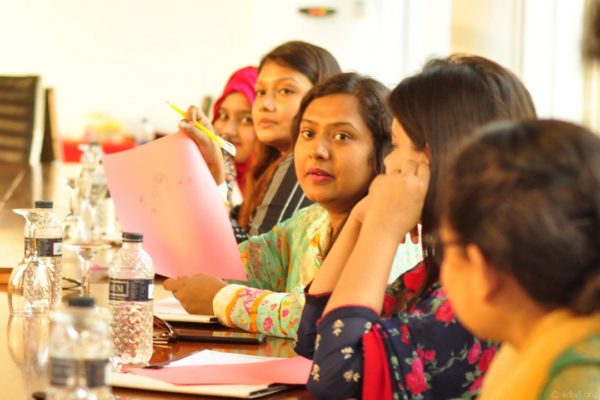Since Bangladesh has already achieved better gender parity in children’s net & gross school enrollment and has increased adult literacy rate, poor learning scenario at primary level has become a major concern. That’s why the assessment of children from grade 2 to 5 at the primary level, needs to be prioritized for the monitoring of SDG 4.
This issue was highlighted by Syeed Ahamed, CEO of IID, on his presentation on SDG 4, at the 7th Annual Meeting of NEQMAP on ‘Education Quality Monitoring for SDG 4 – Education 2030’ at Bangkok, Thailand, from 11th-13th November 2019. During his presentation, he urged that for proper assessment of SDG, assessment of all students (Education for all) needs to be ensured while emphasizing on the quality of the assessment.
The Network on Education Quality Monitoring in the Asia Pacific (NEQMAP) at UNESCO Bangkok, as one of the main regional quality education platforms in support to the Member States in the Asia-Pacific, plays a key role in ensuring the quality learning outcomes as well as in monitoring the learning assessments as a tool to achieve the SDG-4 targets – Education 2030. NEQMAP, with support from the Global Partnership for Education (GPE), organized their 7th annual meeting.
On his presentation, Syeed Ahamed brought up Bangladesh government’s journey to SDG. How government did mapping of agencies, data gap analysis, financing strategy, voluntary national review, monitoring framework and SDG progress report that was presented on December 2018. In all those cases, for instance in case of national action plan, govt. said that organizational/institutional reform will be needed for ensuring quality primary education. Also in case of SDG progress report 2018, govt. said the progress in achieving minimum proficiency cannot be assessed for lack of required data. Bangladesh govt. initially in the data gap analysis suggested that literacy assessment survey of 2011 will be the basis for assessing the SDG 4.1.1. However the SDG progress report cited LASI (Learning Assessment of Secondary Institutions) 2015 only, but there was no data for the assessment of grade 2/3-5, which is SDG 4.1.1 a and b.
While, government has recently taken a welcoming initiative that there will be no exams form grade 1 to 3 from 2020, which will be replaced by formative assessment by the teachers through an app based tracker. However, this may not be enough to assess the SDG. Because observation shows that while at the Primary Education Completion (PEC) Exam students show increased performance from 2010 to 2018. But, in grade 5 the national student assessment shows a very declining state both in case of Bangla & Math. In this scenario, he mentioned the Citizen-led Assessment of Numeracy (CLAN) of PAL Network, as an alternative solution of assessment. To include those who are out of school in the assessment, household based assessment is the only way to go. 13 PAL Network member countries, including Bangladesh, is evaluating the household based assessment. IIDedu, as the secretariat of ASER Bangladesh, is implementing the common assessment in Bangladesh. ASER Bangladesh has already conducted pilot-1 & pilot-2 of the assessment and currently conducting roll out for nation-wide assessment later this year.
All NEQMAP members, as well as delegates from partner organizations, were invited to participate in the meeting to update each other on their relevant activities and to share their experience and thoughts on the topic. In the future, given the changing education system and scenario of the world, future of knowledge & learning needs to be accounted for, for assessment.

